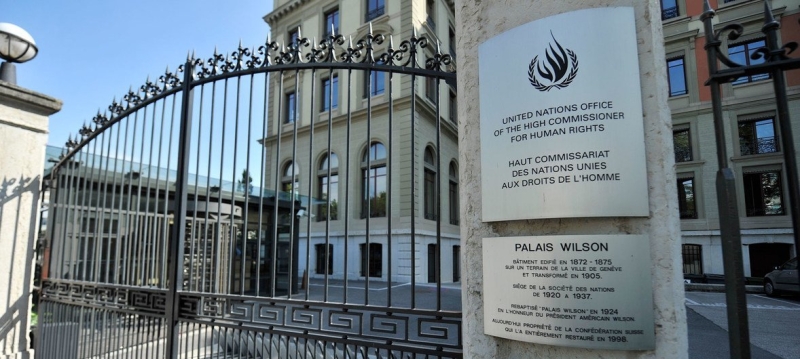
UN Human Rights Office, Geneva. UN expert: unilateral sanctions deprive millions of people of the right to education Human rights
Unilateral sanctions and enforcement measures are increasingly undermining the right to education and other academic rights around the world, according to a new report by the UN Special Rapporteur on the negative impact of unilateral coercive measures, Elena Dovgan.
The document, presented to the General Assembly in October, assesses the impact of sanctions on access to education, scientific resources and international academic cooperation. Dovgan said sanctions limit the supply of educational materials and technologies, degrade the quality of learning, lead to “brain drain” and discrimination based on citizenship or origin. This affects not only the countries subject to sanctions, but also the initiating states and third countries.
“Unilateral sanctions, their means of application and excessive enforcement harm the right to education, the right to enjoy the fruits of scientific progress and academic freedom throughout the world, including countries imposing sanctions,” Dovgan said during the 80th session of the UN General Assembly in New York.
Global implications for education
The report cites numerous examples: in Cuba, the number of university teachers fell from 54,078 in 2021 to 50,298 in 2024, with a disproportionate decrease in the number of women, from 32,807 to 21 611; in Zimbabwe the state budget for education has been reduced; in Venezuela, the budget of the Ministry of Education has decreased by almost 90 percent, leading to massive student dropouts and the destruction of infrastructure. In Iran and Syria, sanctions have made it difficult to purchase laboratory equipment and textbooks, and access to online platforms Coursera, edX and others is often blocked by IP addresses.
In Russia, Belarus and several In other countries, sanctions limit access to international academic programs such as Erasmus+ and Horizon. There have been cases of refusal to participate in joint projects, restrictions on academic mobility, cancellation of student visas and deportation of enrolled students. In many cases, restrictions are imposed solely on the basis of citizenship or country of origin, without individual assessment. Additionally, financial penalties often make it difficult to pay for applications, certificates, and tests, further limiting access to international education.
According to the report, publishers based in sanctioning states have been repeatedly reported to be reluctant to supply printed materials to Cuba, Iran, the Russian Federation and Belarus, citing fears of prosecution. By imposing sanctions, universities and scientists in third countries are forced to comply with restrictions for fear of reprisals or legal risks.
The Special Rapporteur notes that scientists from countries imposing sanctions are often wary of participating in academic events in sanctioned States or others that involve researchers from sanctioned States, collaborating with colleagues, publishing joint work, or even responding to letters from organizers. These concerns, she said, sometimes lead to self-censorship and restrictions on academic freedom. In particular, she cited the example of Tallinn University, which deprived the former rector of emeritus status for participating in a conference in Moscow.
Violation of international obligations
The Special Rapporteur emphasized that such measures contradict articles 13–15 of the International Covenant on Economic, Social and Cultural Rights, which guarantee the right to education and scientific freedoms. Restricting access to knowledge and technology undermines progress in this area, which is unacceptable, the report says.
According to the Special Rapporteur, such actions effectively discriminate on the basis of nationality and impede the achievement of the Sustainable Development Goals, including SDG 4 on quality education and SDG 10 on reducing inequalities.
Call on States and International Organizations
Dovgan called on states imposing sanctions to “remove all measures that are inconsistent with international law, including those directed against scientists and academic institutions,” and to “ensure that the right to education and academic freedom are not affected by unilateral forms of pressure.”
Responsibility for violations of academic freedoms lie with the states applying sanctions, and cannot be shifted to private structures or justified by geopolitical motives, the expert notes.
She also called on UNESCO to create a mechanism for monitoring the impact of sanctions on the right to education and academic freedom and to include these issues in assessment reports on science and education. The International Labor Organization, she said, should monitor the impact of sanctions on child labor, access to decent work and vocational training.
Special Rapporteurs are independent experts appointed by the UN Human Rights Council to address either situations in specific countries or thematic issues in all parts of the world. They are included in the special procedures of the Human Rights Council. Special procedures experts are not UN employees and are not dependent on any government or organization. They work in a personal capacity and are not paid for their work.
